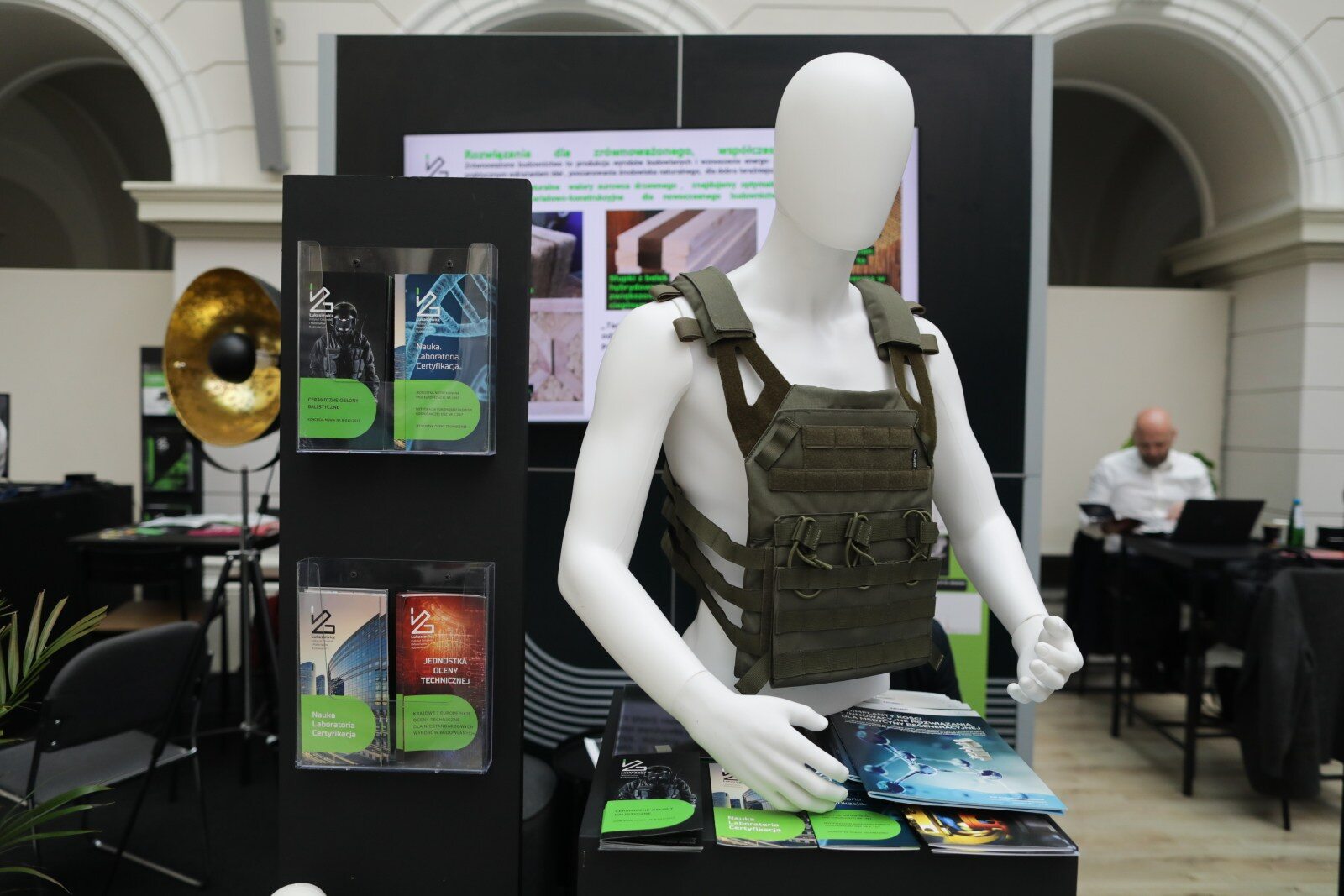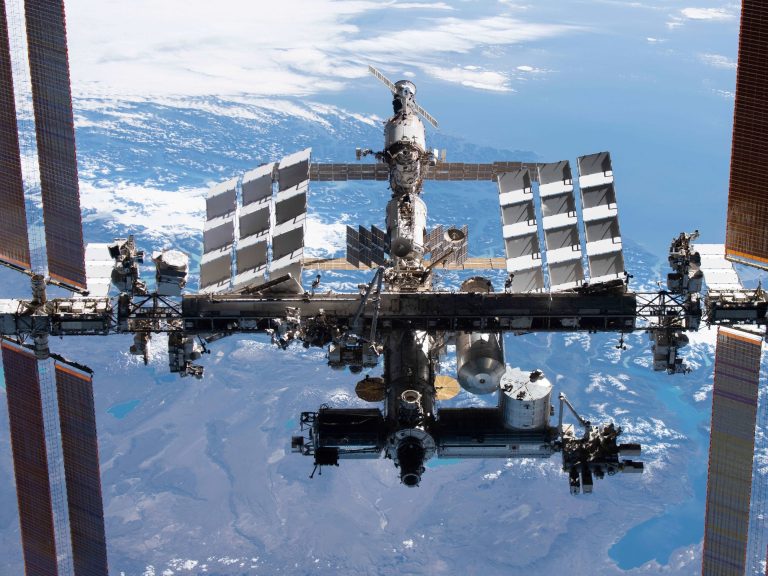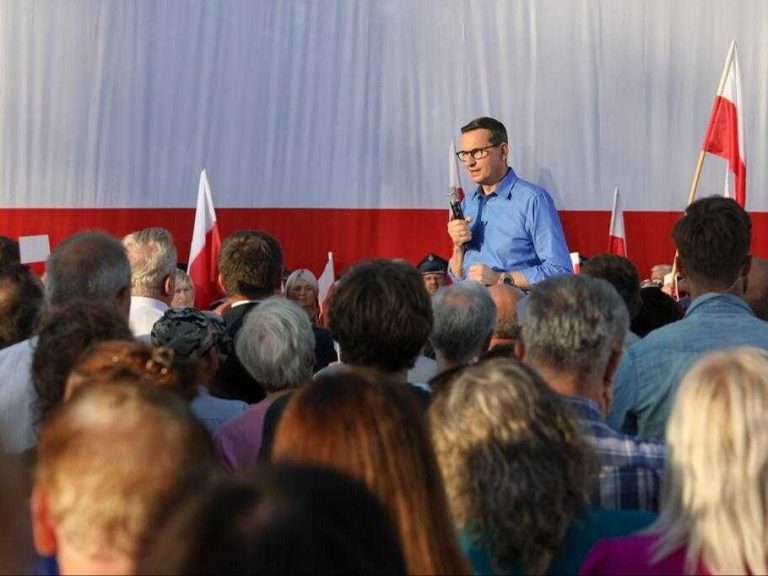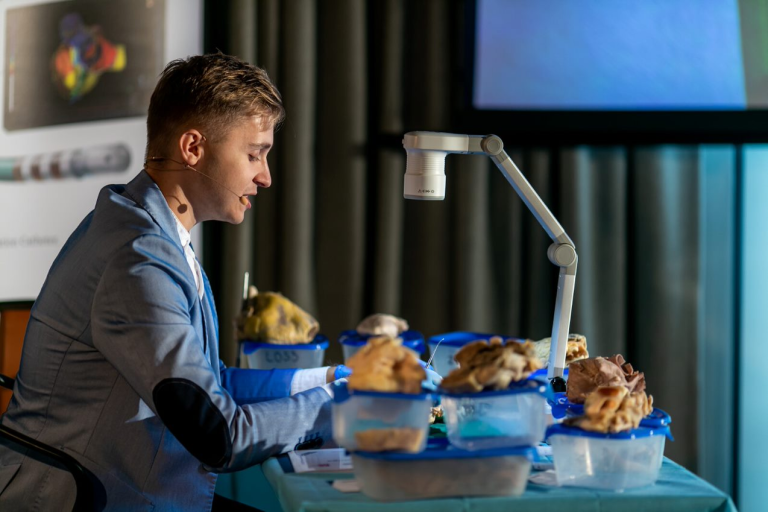ATENA system, bone tissue reconstruction and sign language interpreter. This is how the Łukasiewicz Research Network works

Smart and clean mobility, green, low-emission economy, health and digital transformation – these are the four main areas in which the Łukasiewicz Research Network is working. The activity of the organization is a perfect confirmation that business and science are two fields that are intertwined by a thread of dependence.
“We are the part of science that works for business and supports the development of Polish companies. Acting in the Science is Business formula, we meet with entrepreneurs and offer solutions that help improve the operation of their companies and create technologies that change reality. Łukasiewicz is the realization of Polish aspirations to be a partner for the best European and global experts, both in the world of science and entrepreneurship” – this is how the Łukasiewicz Research Network describes its activities.
The organization was founded in 2019 and currently has 7,000 members. employees and over 20 research institutes in 12 Polish cities. 4.5 thousand people are involved in its activities. scientists and experts, and all this makes it one of the largest research networks in Europe. As the name suggests, the patron of the organization is Ignacy Łukasiewicz – a Polish pharmacist, entrepreneur, social activist, philanthropist and precursor of the oil industry.
Łukasiewicz Research Network. Four main lines of research
The purpose of establishing the Łukasiewicz Research Network was to build a simple, yet effective system that would connect entrepreneurs with scientists dispersed in various units. The organization conducts research in four main directions.
Smart and clean mobility
In this section, the work focuses on technologies related to the design, manufacture, production, characterization and use of ground, air and water means of transport and logistics infrastructure. “In particular, we conduct R&D (Research and Development) in the area of electromobility and environmentally friendly construction solutions in means of transport, materials with extended functionality, as well as robotics and control systems and machines used in agriculture, aviation and space technologies” – we read on website of the Łukasiewicz Research Network.
An example of a project in this area is “ATENA: an autonomous system for off-road land platforms with a target-following function”. Łukasiewicz-PIAP has developed an autonomous system for adapted mobile land platforms that will enable automatic tracking of a selected object, e.g. a vehicle or a person.
According to experts, ATENA is a system that will work well in off-road conditions in unmanned vehicles, as well as in manned vehicles for military applications. It was pointed out that its implementation makes it possible to control a transport platform supporting infantry units, create convoys and reduce the number of people necessary to transport equipment and vehicles.
A green, low-emission economy
“In this area, we work for bioeconomy and material recovery, i.e. the main components of the so-called Circular Economy. As part of this topic, we are working on, among others: for the development of technologies for obtaining raw materials, waste and sewage treatment, eco-design of processes and products in the pulp and paper and packaging industries, as well as the production of composite and biodegradable materials” – sums up another part of the work of the Łukasiewicz Research Network.
“GlassPoPep: a multifunctional composite material for bone tissue reconstruction” – is one of the projects in this area. Łukasiewicz-ICiMB together with other partners are working on a multifunctional composite material with antimicrobial and pro-regenerative properties, which will be used to rebuild bone tissue.
Although the issue sounds extremely complicated, it boils down to the fact that the mentioned composite material combines the properties of bioactive, antibacterial glass, biopolymers as well as peptides and peptide fibrils with pro-regenerative properties, and this is supposed to improve the quality of life of many people in need.
Health
The Łukasiewicz Research Network also works in the areas of biotechnology and biomedical engineering. He conducts research on medical equipment and technology, diagnostic techniques and the development of therapy. “We use digital techniques and artificial intelligence to process biomedical signals and images. We also have competence in the entire manufacturing process of medicinal products, including the chemical synthesis of active substances, preclinical studies in the field of toxicology, bioavailability and bioequivalence, as well as in the development of the technology for manufacturing the drug form and analytical tests and marketing authorization. organization’s website.
The coronavirus pandemic has revolutionized the world. She showed it in a completely different perspective than previously known. Lockdowns, remote work and social isolation were introduced on an abstract – as it seemed at the time – scale. And all this to break the chain of infection. Today, the world has almost returned to its old ways, and masks can be seen in few places, such as hospitals or pharmacies.
“CoVSens: sensors for quick and non-invasive detection of SARS-CoV-2 at an early stage of infection” – is a project on which two institutes, Łukasiewicz-IMiF and Łukasiewicz-PORT, are working. The initiators of the study had one goal: to generate rapid tests that would detect the presence of structural proteins (S and E glycoproteins) present in the virus envelope. Rapid tests, in turn, allow not only to track down the sick, but also – as a consequence – to separate them from healthy people, significantly reducing the risk of infection.
digital transformation
“Our work here is focused on automation and robotics, artificial intelligence, data science, smart cities and sensor networks. We run projects in the area of the development of the Internet of Things, including new solutions, e.g. for physical, chemical and biosensors, materials, nanomaterials and functional composites with advanced physicochemical properties, personal electronics as well as intelligent packaging and textiles. Experts are also interested in photonics, i.e. a field of science that combines the achievements of optics, electronics and computer science.
In this research area, Łukasiewicz-EMAG, together with the Institute of Polish Language of the Polish Academy of Sciences, are implementing the project: “Skeleton system of an automatic translator into Polish Sign Language using the mechanism of a virtual human figure.” Its goal is to develop a framework solution that will allow for the translation of statements in Polish into sign language.
Interestingly, the created character will not only “blink”, but also reflect emotions. It is expected that the dissemination of mechanisms responsible for automatic translation in online systems providing public services will have a positive impact on increasing the digital accessibility of public administration.
Less than three years and 1,500 challenges from 650 companies
Almost a year ago, the Łukasiewicz Research Network published a short summary of its work. In numbers, the matter is as follows: in less than three years, 1,500 challenges were handled by 650 different companies.
Contact with representatives of the organization is simple. Companies can “challenge” employees of the institution through the form. Just follow a few steps to start the whole procedure. First, you need to define your area of interest. “I am looking for support in an R&D project”, “I need research or certification”, “I am looking for a specific product”, “Other” – these are possible variants to be used. After selecting a specific option, there will be more fields to fill in, which will help you outline the problem as accurately as possible.
The Łukasiewicz Research Network emphasizes that within a maximum of 15 working days it will propose a solution to the technological problem reported by the entrepreneur with the support of the R&D project (research and development works). This stage of support is free. The proposal will include not only the merits, but also what team would work on the solution, the budget needed to implement the idea, as well as the work schedule. If the client decides that he is ready for cooperation and the two parties agree to certain conditions, the contract is signed. Interestingly, it is enough to have only an idea to solve a given problem, and experts, using their resources, will develop a way to implement it and start implementing it.
If an entrepreneur would like to use a solution that was previously developed by the Łukasiewicz Research Network, i.e. the so-called products from the shelf, the employees of the institution will contact you within 5 working days and an offer will be presented during this time. Importantly, experts from the Łukasiewicz Research Network are open to cooperation – at every stage of work – with representatives of companies ordering specific orders. They also emphasize that they approach solving problems of large and small companies with the same enthusiasm and professionalism.






